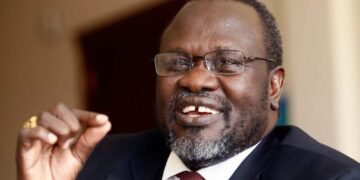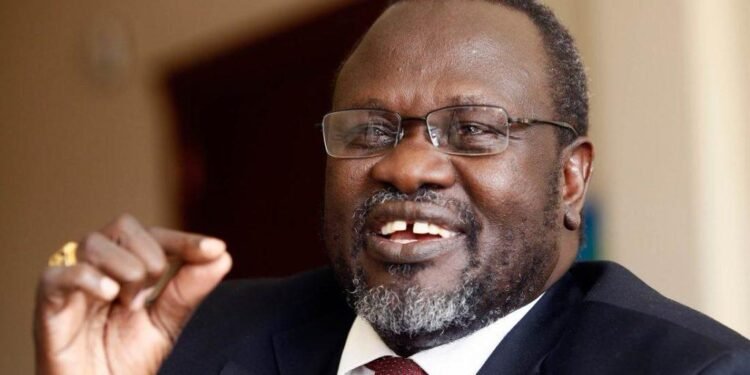The Sudan People’s Liberation Movement-In Opposition (SPLM-IO) has announced a sweeping reinstatement of its officials across several states, citing the need to address what it deems systemic violations of the peace agreement.
This comes in direct response to President Salva Kiir’s months-long wave of sackings targeting SPLM-IO officials at both national and state levels, actions that have sparked fears the 2018 peace agreement may be on the verge of collapse.
In a statement dated August 17, 2025, Oyet Nathaniel, SPLM-IO’s Acting Chairman, issued the order to reinstate previously sacked commissioners and appoint new ones in a show of defiance that further escalates the growing political standoff.
“I, Rt. Hon. Oyet Nathaniel Pierino, Acting Chairman and Commander-in-Chief of the SPLM/SPLA-IO, do hereby Reverse, and Reinstate/Appoint County Commissioners effective from the date of signature,” the statement reads in part.
Among those reinstated include, James Gatluak Lew Thiep, Commissioner of Nasir County, Dak Tut Dei, Commissioner of Longechuk County, Upper Nile State, Biel Butrus Biel, Commissioner of Fangak County, Jonglei State, David Lisi Christopher, Commissioner of Kajo-Keji County, Central Equatoria State, George Wani, Commissioner of Terekeka County, Central Equatoria State, Abdalla Lokeno, Commissioner of Kapoeta East County, Eastern Equatoria State.
Nathaniel also appointed new acting commissioners for Ulang, Nyirol, Panyikang, and Piji County of Jonglei State.
The move signals more than just a reshuffling of local governance, it is a political statement aimed at reasserting SPLM-IO’s constitutional role under the peace agreement.
Pattern of power consolidation
Since early 2025, President Kiir has embarked on a series of political reshuffles that have sidelined key SPLM-IO figures, raising concerns among peace observers and regional partners.
In the recent months, Kiir dismissed Governors, commissioners, state MPs, and even military-aligned civil servants loyal to the First Vice President Dr. Machar in a sequence of presidential decrees that SPLM-IO described as a “blatant violation of the peace deal.”
“The government has made repeated unilateral decisions in violation of Articles 1.3, 1.5, 1.12, and 1.16 of the R-ARCSS. This is not just about positions, it’s about undermining the very framework that brought us to peace,” Nathaniel stated.
A deal in name only
The Revitalized Peace Agreement, signed in 2018, was designed to bring lasting stability to South Sudan by forming a unity government and distributing political power among the signatories.
But tensions between the SPLM-IG and SPLM-IO have grown sharply in 2025, leading some observers to question whether the deal is still operational in practice.
In March and April, violent clashes in Nasir County between government-aligned forces and SPLM-IO units left dozens dead and saw the arrest of several SPLM-IO ministers, lawmakers, and military officers; and in late March 28, 2025, the arrest of Dr. Machar.
The government has claimed these were lawful actions against “insubordination,” while the SPLM-IO views them as political manipulation.
Nathaniel’s statement invokes the legal and political authority under both the SPLM-IO constitution and resolutions from multiple national conferences, signaling that SPLM-IO will not simply accept dismissals from President Kiir without resistance.
International silence and local uncertainty
Though mechanisms such as the High-Level Standing Committee (HLSC) remain formally in place and has recognized Machar’s leadership in an interim capacity, the international community has largely remained silent on the growing rift.
Meanwhile, the South Sudanese citizens are left in a limbo of dual administrations and contested authority.
For instance, the residents of the areas the SPLM-IO has reinstated their leaders, will now face confusion over who their legitimate commissioners are, be it the government-appointed successors or the reinstated SPLM-IO officials?
With elections tentatively scheduled for December 2026, the question remains whether South Sudan’s power-sharing agreement can survive long enough to transition into democratic governance.
The SPLM-IO’s latest move could either reignite negotiation on the terms of the peace agreement, or deepen the split into an irreversible political schism.












